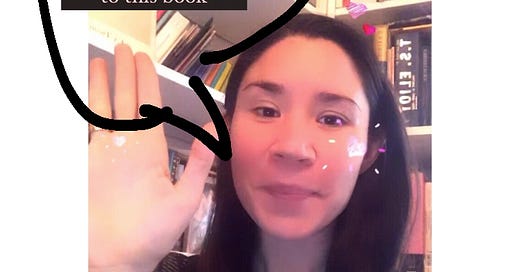Hello writers. Here we are, your final writing prompt for The Phantom Tollbooth. In this post I’m going to give you a little information on a particular literary device (aka, writing tool). I’m going to give you some context about how it fits into the book, and finally a little guiding hand to get you started. But that should only serve to provide a little educational boost. The main point as always is to enjoy the writing. See what you can invent. I can’t wait to read what you come up with in the comments!
After a proper, days long celebration, Milo reluctantly leaves the Kingdom. He finds himself back home but slightly out of place. The next day he comes home from school, excited about a new adventure awaiting only to discover that the tollbooth has mysteriously vanished. Milo seems a little saddened by this, right? Quickly his mood takes a joyful turn.
And, in the very room in which he sat, there were books that could take you anywhere, and things to invent, and make, and build, and break, and all the puzzle and excitement of everything he didn't know—music to play, songs to sing, and worlds to imagine and then someday make real. His thoughts darted eagerly about as everything looked new—and worth trying. "Well, I would like to make another trip," he said, jumping to his feet; "but I really don't know when I'll have the time. There's just so much to do right here."
Wonderfully Milo seems to have shed his tendency for boredom and seems genuinely excited about all the things he can do. But the book ends pretty abruptly and we never get the chance to read about what Milo actually does. Which takes us onto the writing prompt.
For this last writing assignment, I’d like you to write the epilogue to this book. One or two pages that describe what happens to Milo after the story ended. The epilogue should show us what happens to him years later.
You may be asking yourself, an epi-what? And that’s a totally fair question. Here is a pretty thorough definition:
In fiction writing, an epilogue is a literary device that functions as a supplemental, but separate, part of the main story. It is often used to reveal the fates of the characters in a story and wrap up any loose ends. An epilogue is always set at some point in the future, after the main events of the story have taken place.
But if that all sound too complicated, epilogue is really just a fancy word for conclusion, like literally. The word epilogue comes from the Greek epilogos, which means, you guessed it, “conclusion.”
An epilogue has a few main functions in a story, but for our purposes we are going to focus on just one. For this prompt, the epilogue is a chance for you to show how Milo’s journey has impacted him.
Start by picking an age. Are you writing about Milo when he’s in high school, college, maybe he’s in his 40’s, his 70’s? The author doesn’t really give us a clear answer as to what becomes of Milo, which means there is so much opportunity to put your own imagination into it.
However you imagine it, I’d love it if you shared it in the comment. And if you think a friend would like to write along with us, feel free to share.
For the Love of Words is a reader-supported publication. To receive new posts and support this community of young learners, consider becoming a free or paid subscriber.












Share this post